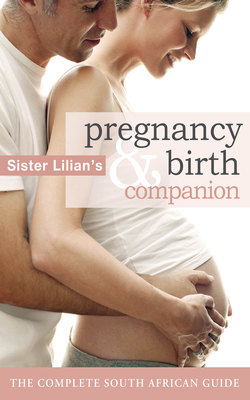Читать книгу Sister Lilian’s Pregnancy & Birth Companion - Lilian Paramor - Страница 11
На сайте Литреса книга снята с продажи.
IMPORTANT HORMONES IN WOMEN
ОглавлениеThe endocrine system is very complex. Although it is not necessary to know about hormones in great detail, a brief overview of the most important ones for a woman’s reproductive function is informative. The various hormones occur in a dynamic balance, governed by the pituitary gland which is located in the middle of the brain.
OESTROGEN
•The word oestrogen is derived from the Greek words oistros, meaning ‘mad desire’ and gennan, ‘to produce’.
•Oestrogen is secreted by the ovaries, adrenal cortex and, in pregnancy, the placenta.
•It causes the typical female sexual characteristics at puberty.
•It is responsible for cyclic changes to the endometrium (inner lining of the womb) and the vagina.
•It sustains new life in the uterus.
•It is important for the metabolism of calcium.
•It can cause headaches, fatigue, irritability, tender breasts and water retention.
PROGESTERONE
•It is secreted by the corpus luteum (the place in the ovary where the monthly egg cell is shed), the adrenal glands and, in pregnancy, the placenta.
•It sustains the endometrium after ovulation in preparation for receiving the fertilised egg.
•It is responsible for the development of the placenta and is later also produced by the placenta.
•Progesterone affects the development of mammary glands.
FOLLICLE-STIMULATING HORMONE (FSH)
•This hormone is produced by the anterior pituitary gland.
•It is responsible for the maturing of the egg cell.
LUTEINISING HORMONE (LH)
•It is produced by the anterior pituitary gland.
•It stimulates ovulation.
•It is responsible for the development of the corpus luteum.
PROLACTIN
•It is produced by the anterior pituitary gland.
•It is co-responsible for lactation.
OXYTOCIN
•It is produced by the posterior pituitary gland.
•It is produced during lovemaking, in labour and for successful lactation.
•It causes smooth muscle cells to contract in the reproductive system and mammary cells.
HUMAN CHORIONIC GONADOTROPIN (HCG)
•This pregnancy hormone is produced by the immature, developing placenta as soon as the fertilised egg cell is implanted in the endometrium.
•Levels in the mother’s urine and blood can confirm pregnancy with great accuracy.
